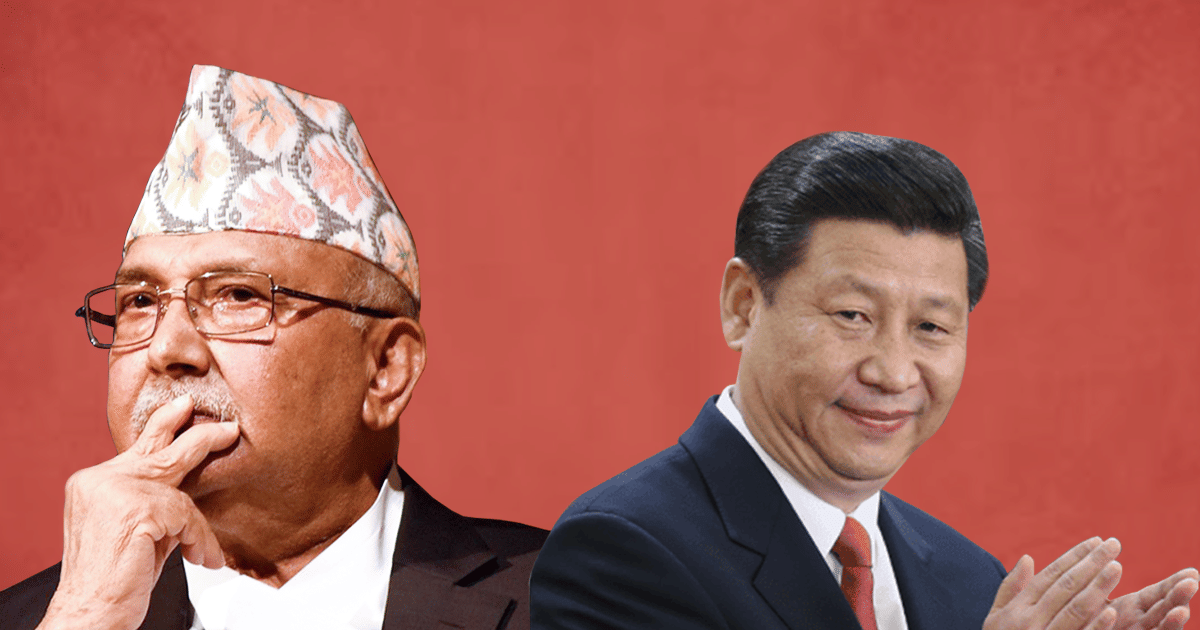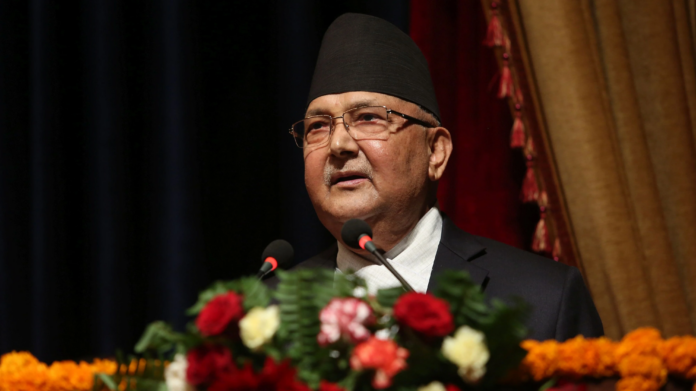In a move signaling stronger diplomatic ties with its northern neighbor, Nepal’s Prime Minister KP Sharma Oli has made it clear that his country will not permit any anti-China activities within its borders. The declaration came during a high-level meeting with a Chinese delegation held at the Prime Minister’s official residence in Kathmandu.
Oli, known for his pro-China stance, emphasized Nepal’s commitment to maintaining a friendly relationship with China, stressing that “no anti-China activities will be allowed in the country.” The Prime Minister’s remarks have sparked conversations about the increasing influence of China in Nepal’s political and economic landscape.

China’s Growing Influence in Nepal
Oli’s government has been viewed as increasingly leaning toward China, especially during his tenure as the Chairman of the Communist Party of Nepal (Unified Marxist–Leninist), commonly known as CPN (UML). This meeting further solidifies the notion that Nepal is gradually aligning its policies to suit China’s interests, even as it navigates its diplomatic relations with India and the West.
In recent years, China has emerged as a key economic player in Nepal, investing heavily in infrastructure projects through the Belt and Road Initiative (BRI). Oli’s administration has welcomed this assistance, seeing it as an opportunity for Nepal’s economic development. However, critics argue that the growing dependence on China could come at the cost of Nepal’s political autonomy.
No Room for Anti-China Sentiments
Oli’s remarks indicate a hard stance against any form of activism or protests that challenge China’s authority. The statement could be a response to concerns that Tibetan exiles and other dissidents may use Nepal as a base for anti-China activities. Nepal has long been a refuge for Tibetan exiles fleeing China, but under Oli’s leadership, the Nepalese government has increasingly cracked down on protests and movements seen as critical of Beijing.
This crackdown is seen by many as an effort to maintain good relations with China, a major economic partner for Nepal. Beijing has historically been sensitive to Tibetan issues, and Nepal’s support in curbing anti-China sentiments has not gone unnoticed.
China’s Support for Nepal’s Economic Development
During the meeting, Oli expressed his hopes for continued Chinese support in driving Nepal’s economic growth. The Prime Minister has often touted China as a valuable partner in Nepal’s development journey, citing projects like highways, hydropower plants, and rail links that are vital to Nepal’s infrastructure.
China has been a key contributor to Nepal’s reconstruction efforts, particularly following the devastating 2015 earthquake. The economic relationship between the two nations has only deepened since, with Chinese investments growing in sectors such as energy, tourism, and technology.
However, this growing relationship has its critics. Many argue that China’s economic assistance comes with strings attached, as Nepal risks falling into a debt trap similar to that faced by other countries involved in China’s Belt and Road Initiative. Others are concerned that Nepal’s increasing reliance on China might lead to compromises on human rights, particularly regarding Tibetan refugees.
Pro-China vs. Pro-India: Nepal’s Diplomatic Tightrope
Oli’s administration has been walking a diplomatic tightrope, balancing its relationships with both India and China. While China has emerged as a major economic player in Nepal, India has historically been Nepal’s closest partner, sharing deep cultural, political, and economic ties.
However, relations with India have seen ups and downs during Oli’s time in office. His tenure was marked by a border dispute with India over the Lipulekh, Kalapani, and Limpiyadhura regions. Many in Nepal viewed Oli’s strong stance against India as an attempt to bolster his pro-China image, and to strengthen ties with Beijing.
This increasing tilt toward China has sparked debates about Nepal’s geopolitical future. Will Nepal be able to maintain its independence, or will it be pulled further into China’s sphere of influence at the expense of its relationship with India?
The Road Ahead for Nepal-China Relations
As China continues to cement its presence in Nepal through investments and economic aid, questions remain about the long-term implications of these ties. Will China’s influence in Nepal continue to grow, or will Nepal find a way to balance its foreign relations between its two powerful neighbors?
Oli’s declaration that no anti-China activities will be allowed in Nepal may please Beijing, but it has also raised concerns among critics who believe that Nepal’s sovereignty could be compromised in the process.
Nepal’s future, it seems, lies at the crossroads of navigating the interests of both India and China while ensuring that its own national interests and sovereignty are protected. As Prime Minister Oli continues to forge stronger ties with China, the world watches closely to see what the future holds for Nepal’s political and economic landscape.


